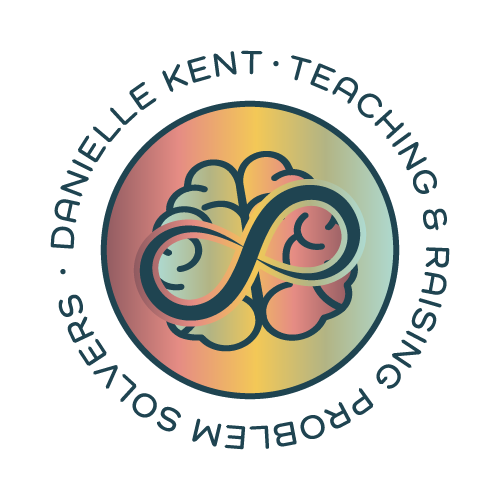Episode 28: What about our own stress response?
Hello, everyone! Good morning, good afternoon, good evening, good midnight, everyone–whenever you’re listening to this episode, welcome to another episode of the Teaching and Raising Problem Solvers podcast.
Starting in January, every Monday I have been sharing a quote from a book that I recommend and love, and then I talk about that quote later on in the week with some actionable take-away steps.
Today’s quote is from the book, Raising Good Humans, by Hunter Clarke-Fields, and it is another phenomenal read.
I read a lot. I do a lot of my own research, and a lot of independent study. The books that I pull quotes from for this podcast are books that I most highly recommend. They are books that I really truly consistently reference, which not only offer me more information, but also provide the information in a way that’s accessible and that is offering a path forward.
I think when we are talking about shifting from a behavior-focused society to a regulation and relationships-focused society, we’re talking about some pretty big behavioral change. We all do better, we all are better able to engage in behavioral change if we feel that we have autonomy. Autonomy is huge. When we are forced into something, we are resistant, and we are unlikely to make long-term change. But when we have autonomy, when we are able to explore and invite ourselves in and make progress on our own terms, that’s when behavior change happens. That’s how I think we pave the way forward, through this autonomous, self determination-led approach.
The quote from Raising Good Humans today is:
We aren’t ‘choosing’ to turn on our frustrated thoughts, helpless feelings, or physiological stress reaction. We react in those moments on automatic pilot. Our stress is running the show, often dictating our reaction. Our words just fly out. Often, our autopilot script is a replay
of the same language our own parents used in those situations.
This quote, for me, is huge. I talked to you last episode about that first step of what we do when we’re learning to become a present and attuned co-regulation partner with a child who is dysregulated, which is to become aware of our thoughts and feelings. Many of you might have recognized that in that moment you were having these frustrating thoughts, feelings, whatever it might be–the stress responses. This quote for me was an excellent follow-up, because it’s a reminder that those are automatic or auto-pilot reactions. We oftentimes are not choosing to have those reactions. They are run by a stress response.
You’ll note that the theme of January has been all about the impacts of stress–stress being when the demand exceeds the capacity–and the understanding that when that demand exceeds capacity a little bit too much, that’s when we default into the stress response. That can be at variable levels.
I also talked this month about how stress isn’t inherently bad; that a little bit of stress is good, it’s how we learn. But I think learning about stress level–our own stress levels, what’s a tolerable level to grow, and what becomes unmanageable and stressful–is important. But it’s also important to understand, as you’re becoming aware of your thoughts, feelings, and energy states when you’re with a child who is dysregulated (whether that’s your own child or a child you’re working with), that any thoughts or immediate feelings or reactions you have might be stress response-based. So please don’t second-arrow yourself by having judgments about those stress responses.
I’ll put a link in about second-arrowing in the show notes, but the second arrow is essentially a judgment upon what’s happening, or on our thoughts. We might have a response of, “oh, they’re being such a bad kid!,” and then we might say, “oh, I can’t believe I had that thought that they were a bad kid!” And when we second-arrow ourselves around this stuff, it only creates more stress. It only creates more dysregulation for ourselves. So our first job, as we’re becoming aware of our thoughts and emotions, is to work to take the judgment out. To become aware that those immediate things that are happening might be stress responses–stress responses that, across time, as you become aware of them, as you grow your skills, you buffer the stress. You can change that. But being aware means acknowledging that sometimes our immediate response is a stress response.
So, remove the judgment and become aware.
All right, everybody. Thanks for listening to another episode. I’ll talk to you next time!
